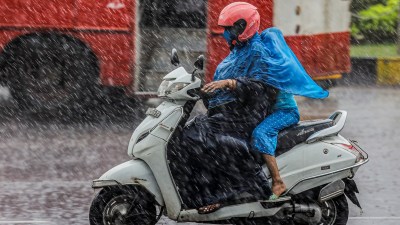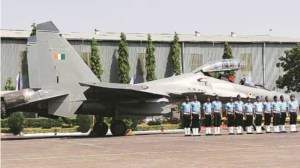Palestinian restaurant owner hungry for pullout
A faded drawing of the sea and a sign in Hebrew and Arabic are all that remain of Hashem al-Hawaldah’s fish restaurant nestled next to ...

A faded drawing of the sea and a sign in Hebrew and Arabic are all that remain of Hashem al-Hawaldah’s fish restaurant nestled next to a Jewish settlement in occupied Gaza.
But al-Hawaldah is now optimistic that things will change and plans to reopen his once-bustling business when Israel evacuates all 21 settlements in the strip under Prime Minister Ariel Sharon’s plan to ‘‘disengage’’ from conflict with Palestinians. ‘‘My restaurant was burned down and my other one on the beachfront was taken away from me when the Shirat Hayam settlement was built,’’ he said, staring at the empty ground where it once stood.
‘‘I hope to reopen for business after the pullout and I hope to start building a new restaurant in five months. I have some funding and things will be better with the help of God.’’
Before the religious settlement of Shirat Hayam was founded in 2000—on land which settlers see as a Biblical birthright—a string of cafes and restaurants served both Israelis and Palestinians. The situation changed dramatically when Israeli forces in 2001, cut off Al-Mawasi by throwing a security cordon around it. —Reuters
Unicef warns of impending risk to safety of children during withdrawal
GENEVA: The United Nations agency for children today warned that arms and explosives left behind after Israel’s planned withdrawal from the Gaza Strip posed an acute danger to the young, and urged caution. Unicef urged that children be kept out of harm’s way to prevent more deaths. In the nearly five years since a Palestinian uprising broke out, 829 children under the age of 18 have died—713 of those Palestinian—it said. ‘‘There will be weapons, there might be explosives, in this area,’’ said Unicef spokesman Marc Vergara at a media briefing. ‘‘They might find unexploded ordnance. That’s the danger.’’ Unicef has sent emergency supplies to address potential health, education, water and sanitation needs of women and children in the area. It has started working through schools and community agencies to teach children how to protect themselves. Reuters






- 01
- 02
- 03
- 04
- 05

























